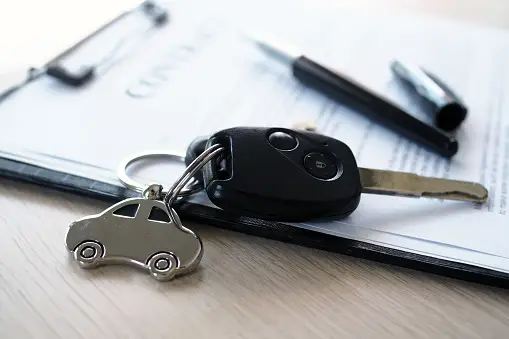Choosing a car is a significant decision, influenced by various factors such as budget, fuel efficiency, brand reliability, and safety features. However, one crucial aspect often overlooked is the cost of insurance. In Virginia, as in many other states, the type of car you drive can significantly impact your insurance premiums. This article delves into the latest information on which cars are the cheapest to insure in Virginia, providing detailed insights into why these cars are cost-effective from an insurance perspective.
Factors Influencing Car Insurance Rates
Before identifying the cheapest cars to insure, it’s essential to understand the factors that influence car insurance rates. Insurance companies consider several variables when determining premiums, including:
- Vehicle Type and Model: Some cars are inherently cheaper to insure due to their lower risk profiles. Typically, sedans and minivans have lower insurance rates compared to sports cars and luxury vehicles.
- Safety Features: Cars equipped with advanced safety features, such as anti-lock brakes, airbags, and collision avoidance systems, tend to have lower insurance premiums.
- Repair Costs: Vehicles with lower repair costs generally have cheaper insurance. This often includes cars with readily available and affordable parts.
- Theft Rates: Cars that are less likely to be stolen usually have lower insurance premiums.
- Driver Profile: Factors like the driver’s age, driving record, and credit history also play a significant role in determining insurance rates.
Top Cars with the Cheapest Insurance in Virginia
Based on recent data and expert analysis, the following cars are among the cheapest to insure in Virginia:
1. Honda CR-V
The Honda CR-V is consistently rated as one of the most affordable cars to insure. This compact SUV is renowned for its reliability, safety features, and low repair costs. The Honda CR-V comes with advanced safety technology, including adaptive cruise control, lane-keeping assist, and automatic emergency braking, which contribute to its low insurance premiums.
2. Subaru Outback
The Subaru Outback is another excellent choice for affordable insurance. Known for its durability and safety, the Outback comes with standard all-wheel drive and a suite of safety features like Subaru’s EyeSight driver-assist technology. The Outback’s strong safety ratings and lower repair costs make it a cost-effective vehicle to insure.
3. Toyota Camry
The Toyota Camry is a midsize sedan that offers a balance of performance, comfort, and safety. It consistently ranks high in reliability and safety ratings, which translates to lower insurance costs. The Camry’s advanced safety features, such as lane departure warning and automatic high beams, contribute to its affordability in terms of insurance.
4. Ford Escape
The Ford Escape, a compact SUV, is also among the cheapest cars to insure in Virginia. It offers a range of safety features, including blind-spot monitoring and rear cross-traffic alert. The Escape’s reasonable repair costs and high safety ratings make it a popular choice for those looking to minimize their insurance expenses.
5. Chevrolet Equinox
The Chevrolet Equinox is another compact SUV that is economical to insure. It features various safety technologies, such as forward collision alert and lane departure warning. The Equinox’s low theft rates and affordable repair costs further contribute to its low insurance premiums.
Why These Cars Are Cheap to Insure
Safety Features
One of the primary reasons these cars are cheap to insure is their comprehensive safety features. Insurance companies offer lower premiums for vehicles that are less likely to be involved in accidents or cause injuries. Cars like the Honda CR-V and Subaru Outback, with their advanced driver-assist systems, significantly reduce the risk of accidents.
Reliability and Repair Costs
Reliability is another crucial factor. Cars that are less prone to breakdowns and have lower repair costs are cheaper to insure. The Toyota Camry and Honda CR-V, known for their durability and low maintenance costs, are prime examples. Additionally, vehicles with readily available and affordable parts, such as the Ford Escape, incur lower repair costs, leading to reduced insurance premiums.
Low Theft Rates
Cars with lower theft rates are also cheaper to insure. The Subaru Outback and Chevrolet Equinox, for instance, are less frequently targeted by thieves, resulting in lower insurance costs. Insurance companies use theft statistics to assess the risk of insuring a vehicle, and cars with lower theft rates are deemed less risky and thus more affordable to insure.
Tips to Further Reduce Car Insurance Costs in Virginia
Even if you choose one of the cheapest cars to insure, there are additional strategies you can employ to further reduce your insurance premiums:
1. Compare Quotes
Always compare quotes from multiple insurance providers. Rates can vary significantly between companies, so shopping around can help you find the best deal.
2. Increase Your Deductible
Increasing your deductible—the amount you pay out of pocket before insurance kicks in—can lower your premium. However, ensure you choose a deductible that you can afford in case of an accident.
3. Bundle Policies
Many insurance companies offer discounts if you bundle multiple policies, such as auto and home insurance, with the same provider.
4. Maintain a Good Driving Record
A clean driving record with no accidents or traffic violations can significantly reduce your insurance rates. Insurance companies reward safe drivers with lower premiums.
5. Take Advantage of Discounts
Ask your insurance provider about available discounts. Common discounts include those for good students, safe drivers, and vehicles with anti-theft devices.
6. Opt for Usage-Based Insurance
Some insurance companies offer usage-based insurance programs that monitor your driving habits. If you are a safe driver, you could receive discounts based on your driving behavior.
The Impact of Virginia’s Insurance Laws
Virginia has specific insurance requirements that all drivers must meet. Understanding these laws can help you make informed decisions about your insurance coverage.
Minimum Coverage Requirements
In Virginia, drivers are required to carry the following minimum insurance coverage:
- Bodily Injury Liability: $25,000 per person and $50,000 per accident
- Property Damage Liability: $20,000 per accident
- Uninsured/Underinsured Motorist Coverage: Equal to the minimum bodily injury and property damage liability coverage
Failure to maintain the minimum required coverage can result in penalties, including fines and the suspension of your driver’s license and vehicle registration.
Optional Coverages
While the minimum coverage is mandatory, you can also opt for additional coverages to enhance your protection. Some of the optional coverages include:
- Collision Coverage: Covers damage to your car in case of an accident.
- Comprehensive Coverage: Covers non-collision-related damage, such as theft, vandalism, and natural disasters.
- Medical Payments Coverage: Covers medical expenses for you and your passengers in case of an accident.
- Rental Reimbursement Coverage: Pays for a rental car while your vehicle is being repaired after a covered loss.
How to Choose the Best Car for Insurance Savings
When selecting a car with insurance costs in mind, consider the following steps to ensure you’re making the most informed decision:
Research and Compare Models
- Use Online Tools: Various websites and tools can help you compare the insurance costs for different car models. Websites like Kelley Blue Book, Edmunds, and the Insurance Institute for Highway Safety (IIHS) provide valuable information about vehicle safety ratings and insurance costs.
- Read Reviews: Consumer reviews and expert opinions can provide insights into the real-world costs of owning and insuring a car. Look for reviews that discuss long-term reliability, maintenance costs, and insurance rates.
- Check Safety Ratings: Vehicles with high safety ratings are generally cheaper to insure. The National Highway Traffic Safety Administration (NHTSA) and the IIHS offer safety ratings and crash test results for most vehicles on the market.
Assess Your Personal Needs
- Determine Your Usage: Consider how you will use the car. If you have a long daily commute, a car with better fuel efficiency and lower maintenance costs may be more beneficial, even if the insurance is slightly higher.
- Family Considerations: If you have a family, a vehicle with more space and advanced safety features may be a priority. Minivans and SUVs often come with features that can lower insurance premiums, such as multiple airbags and stability control.
- Lifestyle Factors: Your lifestyle and hobbies may also influence your choice. For example, if you enjoy outdoor activities, an SUV with good off-road capabilities and low insurance costs might be ideal.
Conclusion
Choosing the right car can have a significant impact on your insurance premiums. In Virginia, cars like the Honda CR-V, Subaru Outback, Toyota Camry, Ford Escape, and Chevrolet Equinox are among the cheapest to insure. These vehicles are known for their safety features, reliability, and low repair costs, making them cost-effective choices for drivers looking to save on insurance.
By understanding the factors that influence insurance rates and employing strategies to reduce your premiums, you can make informed decisions and find the best coverage at the most affordable price. Always compare quotes, maintain a good driving record, and take advantage of available discounts to ensure you get the best deal on your car insurance in Virginia.
Frequently Asked Questions (FAQs)
1. What factors affect car insurance rates the most?
The most significant factors include the car’s make and model, safety features, repair costs, theft rates, and the driver’s profile (age, driving record, and credit history).
2. Are newer cars more expensive to insure than older cars?
Not necessarily. While newer cars may have higher repair costs, they also come with advanced safety features that can lower insurance premiums. It’s essential to compare insurance quotes for both new and used cars.
3. How can I find the cheapest car insurance in Virginia?
To find the cheapest car insurance, compare quotes from multiple insurers, increase your deductible, maintain a clean driving record, and take advantage of available discounts. Consider bundling policies and exploring usage-based insurance programs.
4. Do safety features on a car really lower insurance costs?
Yes, cars with advanced safety features such as airbags, anti-lock brakes, and driver-assist technologies often qualify for lower insurance premiums. These features reduce the risk of accidents and injuries, leading to fewer claims.
5. Is it cheaper to insure a car with high theft rates?
No, cars with high theft rates generally have higher insurance premiums. Insurance companies consider theft risk when determining rates, and vehicles that are more likely to be stolen will have higher premiums.




